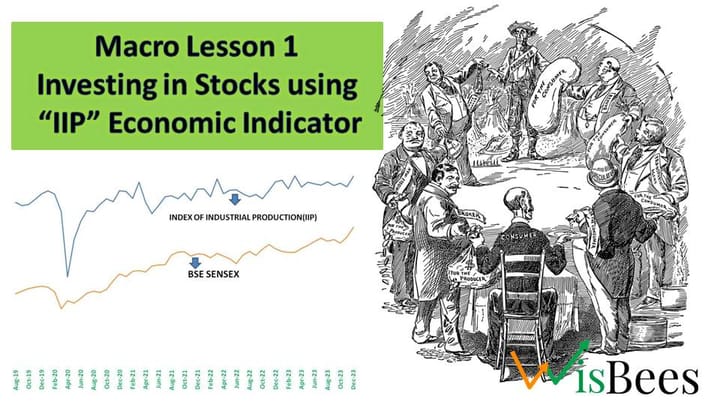Is a VC Really the Missing Piece for Your Startup's Success? Beyond Funding – Adding Value to Startups.

Traveling back in time, several years ago, during my School days, I stumbled upon a newspaper article showcasing VC-General partners impeccably attired in suits and boots, yet their profession remained an enigma to me. It wasn't until later, as my entrepreneurial curiosity grew, that I began to understand their role. Just a few months ago, I was involved in discussions with a VC regarding funding for my startup. Armed with this newfound experience within the VC realm, I aim to shed light on the imperative role of VC funding for startups and delve into its intricate workings.
Main Story
Can our government's aspiration to achieve a 5 Trillion Dollar economy be realized without the support of Venture Capital and Private Equity funds?
Certainly not. India is now recognized as one of the world's fastest-growing economies, and a significant catalyst for this growth has been the substantial influx of Private Equity capital into the country. The remarkable rise of Unicorns in sectors such as Fintech, Enterprisetech, Edtech, and Deeptech has primarily been made possible through the infusion of VC/PE investments. It's noteworthy that 90% of the VC investments in India originate from foreign investors, and 85% of PE investments in India are also contributed by foreign investors. Therefore, it is evident that a substantial portion of VC/PE funding in India originates from sources outside the country."
While there were substantial VC investments in India, there has been a slight slowdown in the past year and a half, with only one unicorn deal (achieving a 1 billion dollar valuation) observed in the Indian startup landscape, namely Zepto.
What's causing the poor investor sentiment? Several factors, including weak macroeconomic conditions and the lacklustre performance of recent startup IPOs, which are typically sought-after exit routes. However, the number of VC-startup deals remains robust.
Let's delve into the world of Venture Capital Funds and their evolution.
First, let's understand why there was a need for Venture Capital Funds when traditional banks were available.
When you embark on a startup, you face various challenges, including a lack of capital, guidance, network, and expertise.
All of these significant challenges are generally addressed by VC firms for startups. Traditional banks don't readily provide loans to startups, and there are valid reasons for that. In the early stages of a business, the business model may not be proven, there may be no financial track record to assess repaying capacity, and there might be insufficient physical assets to offer as collateral. Even if a bank were to invest under these circumstances, they might have to wait a considerable amount of time, often a minimum of 2-3 years, until the startup generates substantial profits.
This is where Venture Capital Funds come into play. In addition to providing capital, they bring expertise and a valuable network. Before the advent of VCs in India, it was exceptionally challenging for entrepreneurs with no prior business background to establish world-class businesses. Now, college students or first-generation entrepreneurs from tier 2 and tier 3 cities are building unconventional, unproven, or innovative business ideas that were previously untested.
But when did this transformation begin?
(A first-generation entrepreneur is an individual who starts and establishes a business, often without prior family history or background in entrepreneurship.)
According to a recent survey conducted by INC 42, we present the areas where Indian startup investors are inclined to invest their capital. Notably, there is a discernible surge in interest in Fintech and Enterprise tech startups.
So, how does a VC operate?
A Venture Capital firm raises funds from investors, known as Limited Partners (LPs), and deploys these funds in startups in exchange for equities. In most VC scenarios, the majority of funds originate from institutional investors, with limited contributions from High Net Worth Individuals (HNIs). These LPs generally agree to a substantial return, acknowledging the high-risk nature of investing in early-stage startups.
In a recent interview, some VCs noted that foreign investors typically anticipate returns of no less than 25%, adjusted for currency fluctuations. This underscores the VC's critical role in selecting the right businesses for investment. VCs derive income from two primary sources: a management fee (typically around 2% of funds invested) and a 20% share of returns exceeding the threshold agreed upon by LPs.
Once VCs invest in a business, they commit to a longer-term engagement, with a minimum duration of 10 years, although they may exit within 5-7 years as per the agreement's terms. Their preferred exit strategy often involves an Initial Public Offering (IPO). Alternatively, they may pursue an exit through strategic sales, involving the sale of the startup to a larger company in the same industry, or by transferring their investment to a later-stage fund, such as a private equity fund.
A fundamental distinction between a Private Equity (PE) fund and a venture capital fund is the duration of their involvement and the stage at which they invest. VCs engage over a longer term, beginning at the seed stage, whereas PE funds invest larger amounts in later stages, primarily before the pre-IPO stage for a shorter term generally 3-4 years.
Now, why might a VC invest in your startup?
In addition to the strength of your business idea, VCs seek specific qualities in a startup's founding team, with trust playing a significant role in the world of venture capital. In the early stages of a startup, uncertainty is prevalent, and there is often no track record to rely on. However, in late-stage investing, a track record becomes available for evaluation. VCs tend to favor founders who exhibit a problem-solving attitude, curiosity, and inquisitiveness. Additionally, having a proficient technical co-founder can enhance the startup's prospects, as does a founder who displays resilience and unwavering commitment to the business, even in challenging times.
However, why might a VC not invest in your startup?
Sometimes, a startup founder oversimplifies the Total Addressable Market (TAM), leading to unrealistic market size estimations without appropriate segmentation. Understanding the competitive landscape is equally essential, and a lack of proper insight, coupled with a less energetic founder, may deter VC interest.
Which type of VC do you need?
There is a concept known as 'Dumb Money.' These days, shows like Shark Tank have gained significant popularity, where you may have observed entrepreneurs selecting an investor with a smaller 'cheque' size than another due to additional benefits offered by the chosen investor. When launching a business from the idea stage to the product stage, entrepreneurs face the significant challenge of building a customer base. You need that initial exposure to the market to cross the threshold.
A VC should not only provide funds but should also bring value. A VC can enhance a startup by offering guidance, a network, and access to potential customers and partners. If a VC has a global reach, they can take your product from a local to a global scale.
If a VC cannot provide these elements, it might be wise to reconsider their involvement because the value they bring can sometimes outweigh the funds.
In the present day, there are sector-specific VCs exclusively dedicated to investing in particular industries, offering enhanced value to startups. For instance, if your startup operates in the Fintech sector, it's advisable to seek out a VC or angel investor specializing solely in Fintech. Similarly, if your focus is on healthcare-related products, you can find investors who specialize in healthcare businesses. Today, many business professionals are venturing into angel investing to create comprehensive ecosystems around their related industries, as exemplified by 'Rainmatter,' a startup incubator fund associated with Zerodha, which exclusively invests in Fintech-related businesses.
In conclusion…
India continues to harbour numerous untapped and unorganised markets, attracting first-generation entrepreneurs with innovative business concepts to harness their potential. This has made the role of a VC fund more critical and challenging. While mature companies can be valued using established techniques, assessing the worth of a seed-stage or early-stage startup is more of an art. VCs make decisions by closely examining the startup team's skill set, execution capabilities, market competition, and the limited data available regarding traction before deciding whether to invest. Ultimately, the choice of the right VC can be a critical factor in a startup's journey to success, as they can contribute not only funds but also the guidance and support needed to thrive in a competitive market.



